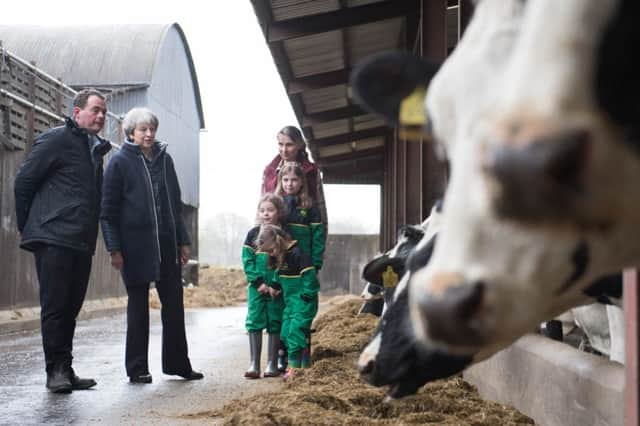Frustration at slow pace so far


Whether Mrs May heeds these warnings about the importance of the food industry is open to question. She is someone who wants to do the right thing, but she is being buffeted by eurosceptics in her own party, and a European Commission still more concerned about ‘punishing’ the UK for leaving the EU than ensuring a sensible outcome with one of the biggest customers of many of the EU-27 member states’ industries. We are now into the final 12 months before Brexit happens. That decision is not going to change, and as we get closer to March 29th next year it seems inevitable that wiser political heads will prevail in London and Brussels. Despite her weak position with a minority government Mrs May is one of those wiser heads,
To prepare for Brexit we need to ensure politicians move from trying to score points into having a grown up debate about the biggest economic change the UK will face for generations. One of the things that needs to be debated is the issue of food security. In an era of plenty, which we have all enjoyed for years, it is easy to dismiss this as unimportant. However we live in an uncertain world, both in terms of politics and climate, and it does not take a lot to turn the luxury of plenty into a shortage that will drive up prices.
Advertisement
Hide AdAdvertisement
Hide AdThis is why the government must not be allowed to write off farming as an industry whose main end product – food rather than environmental good – is no longer a key national interest. This has traditionally been a view adopted in rich countries. But a report just out confirms that global food security is becoming a bigger problem. In 2017 124 million people in 51 countries were affected by food insecurity. This was up by 11 million compared to 2016. Their challenges are about increasing domestic food production, via efficiency, or generating more economic activity to allow them to import more food.
For the post-Brexit UK the challenge is simpler. It is whether the government believes its enthusiasm for tariff free imports from countries with which it wants trade deals is the right policy to pursue. Removing the protection farming enjoys within the EU looks an easy option for urban-focussed politicians at Westminster. However the government cannot be allowed to escape fundamental questions about reducing food security. Its answer may be that this can go hand-in-hand with a reliance on imported food – but it needs to prove that this is indeed the case to a general public rightly sceptical about all politicians.
On the theme of food the UK set a first with the Grocery Code Adjudicator to bring more fairness to the food supply chain. The EU is now set to take this further. The EU plan is part of its action against so-called unfair trade practices (UTPs) and has long been something the farm commissioner, Phil Hogan, has wanted to deliver. He believes legislation is needed, on the basis that largely voluntary arrangements in individual member states have not delivered.
The commission has published a draft Prohibition of Unfair Practices bill. It has done so despite concerns in some member states that this might stifle price competition. New rules will outlaw forcing suppliers to pay ‘golden hello’ money, known as marketing contributions, to buy business. Retailers will have to meet a 30-day limit to pay bills and will not be allowed to return or charge suppliers for unsold produce. They will also no longer be allowed to cancel contracts at short notice. Having led the way with the GCA, if the government does not give the adjudicator more teeth we could end up envying the protection that farmers and food processors in the EU-27 will enjoy.